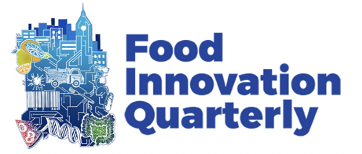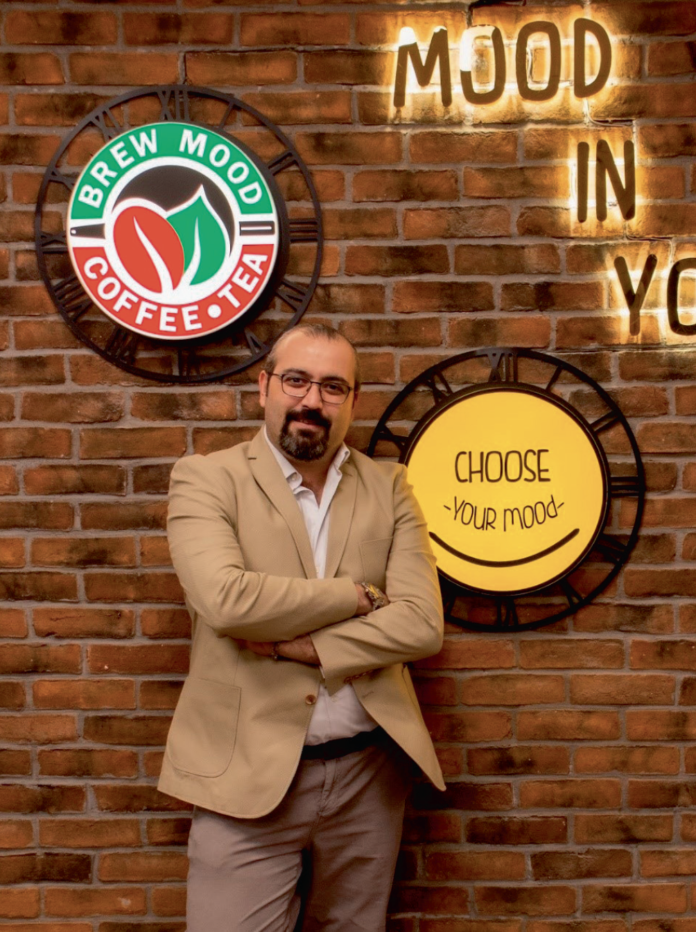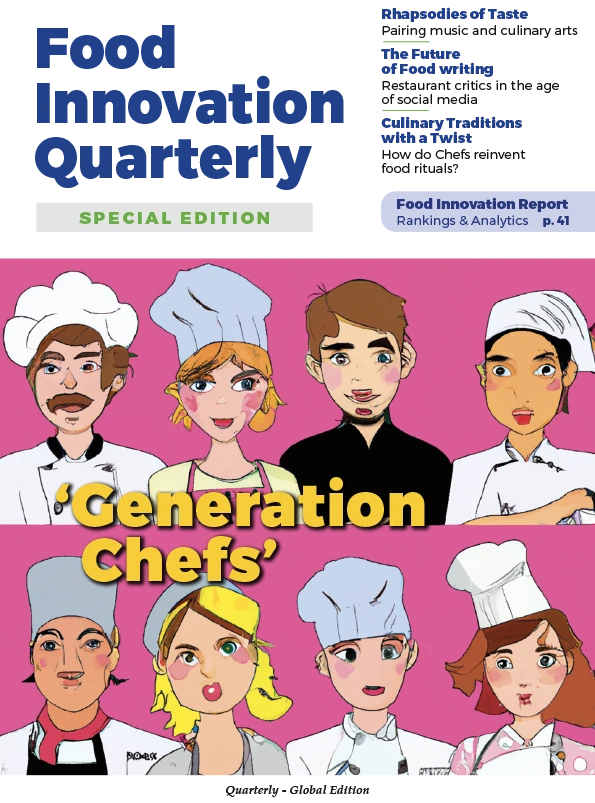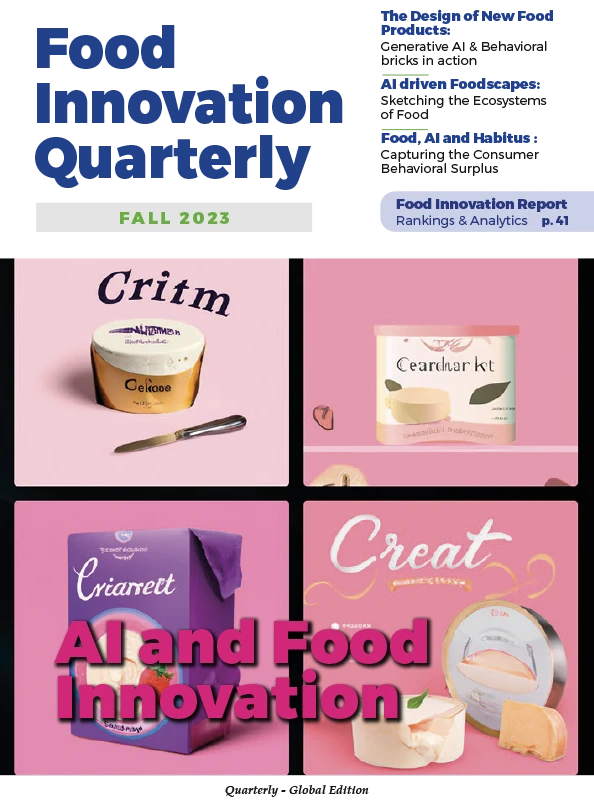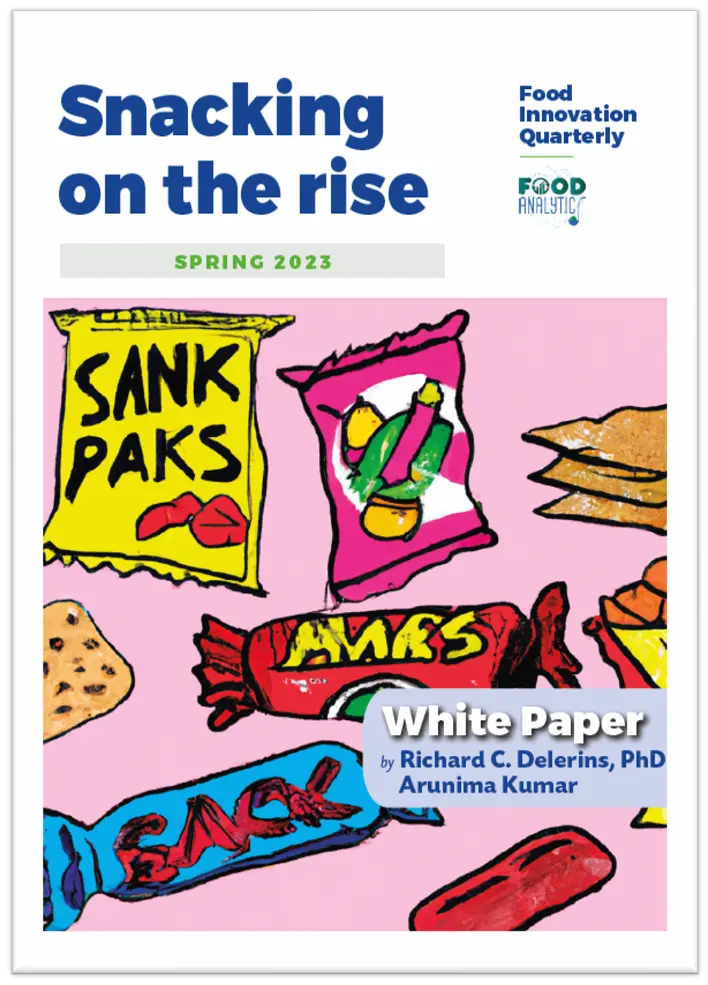Ismet Demir, Founder, Brewmood Coffee, Izmir, Turkey
Food Innovation Quarterly: Can you please briefly introduce yourself?
Ismet Demir: I’ve worked in sales, marketing and customer interaction in chain markets for a long time. In 2009, I founded Turkey’s first franchise consulting company. We guided people on how to be more innovative in ideas and explain the fine line between being a brand and being a trend.
However, as Turkey was not mentally ready for this, we went back to what we were doing already in the field. Unfortunately, ideas don’t make money in this country. Everyone wants to touch, taste, smell, see or feel. So, we eventually started our own business. The first step was to figure out where ‘coffee’ is going in Turkey because we were the first local representatives of self-service coffee after international coffee chains like Starbucks, Gloria Jeans, Tchibo, Caribou. Actually, we got both positive and negative reactions. They insisted that the idea of a local self-service coffee would not work in Turkey, but we resisted because there were success stories.
Unfortunately, there is a big handicap in Turkey: We cannot protect what we already have. I firmly believe that in this country, every village, city, or town has the potential of brand equity. From fabrics to shalgam (turnip juice), from baklava to kebab, we have many examples. Isparta is famous for its roses for instance or in Iskenderun or Hatay, cuisine is based on different sauces. In Turkey, people go to Burger King, they wait in the line, get treated badly, and end up eating with poor service, but they don’t give that chance to the meatball restaurant next to it where they would find sincerity and a better service.
FIQ.: Why is it like that you think?
I.D.: I think this is a social problem. As a nation, we don’t embrace ourselves as we are; we are not aware of our strengths. We consume fast food or coffee from other countries. In the end, we lower our brand equity.
Although we have many alternatives and options, we don’t make use of them properly. When we first founded our brand, our goal was to be able to open a branch in Seattle, too.
FIQ.: The city of Starbucks…
I.D. : Yes. We started with that motivation and enthusiasm. I’m not sure if we’ll be able to see that happening, but maybe 2nd or 3rd generation will do.
It’s not that easy to compete with those big brands. However, the thing that distinguishes us from others is that we tried to create a bond between the product and the consumer and as you know this is the hardest thing in the food sector.
Actually, it’s more difficult to create this emotional bond with the product rather than the brand itself. Therefore, we came up with a simple idea. We thought it would be good to communicate in the simple form of emojis.
As a concept it’s not new. Communicating with shapes actually dates back to hieroglyphics and that was our starting point. But of course, there was also a strategic reason behind this. While we were thinking about how we could
make a difference, we decided that we should ask a question to the customers, a question that creates communication and interaction, ownership of the product and a personal experience because that would create the bond.
The question was simple and clear: ‘How do you feel today?‘. No one asks this question enough. People sometimes feel cool, or sexy and seeing this on the product made them feel more connected with it and this increased the appreciation of the product by nearly 90%. On the other hand, one of the things we aimed for was to use social media effectively. The first thing people do when they have their coffee is take a photo and share it by using our hashtag.
FIQ.: Like I am hungover today… so I take a photo and put it on Instagram…
I.D.: Exactly. This has also brought down the advertising costs. On the other hand, it allows to play with other international coffee chains like ‘I don’t care about your name, just tell me your mood‘. Actually, putting an emoji was not the only idea. It was a whole concept in our brand strategy, including the name. The thing we did was more than just putting an emoji sticker on the cup.
A few months ago, Finansbank tried to copy our concept by asking its customers how they feel that day. Many tried to use this after us and that’s when we experienced being a brand rather than a trend. This year, rap music is popular, then cafés using rap music are popular for a while, but then they’re not anymore one year later. This fine line between being a brand and a trend is often missed by the managers in Turkey.
Through experience, I can clearly say that every ten years, coffee as a concept, changes. Considering the last 30 years, first coffee houses (kıraathane in Turkish) came up, then cafés and restaurants followed and now modernized coffee chains are all the rage. The latest craze was Kahve Deryası, Kahve Durağı, Kahve Diyarı etc that we call them as ‘D Series’. If only they observed the sustainability of this and did not only cater to a certain district, town or city. For example, we got a negative reaction just because we gave an English name for our local company, but our aim is to open stores in the United States or England, so why wouldn’t I name it in English? In fact, Turkish companies could be in a different position
if they had three, five, ten years’ global plans because technically, with the United States, France & Germany, Turkey is one of the top countries that give franchise.
FIQ.: Why did you start in Izmir and not in Istanbul, the biggest and most globalized Turkish city?
I.D. : We started in Izmir because it’s a special city in the food and drink sector. Izmir has much more alternatives than other cities. When you look at numbers, the number of chairs is 27 per person, so that means a person has 27 alternatives regarding food and drinks. It’s a big number. For example, that number is 17 per person in Istanbul.
FIQ.: Then Izmir is a good lab for you.
I.D.: That’s right. If you are successful in Izmir, the chance of being successful in another city is high by 90%. Also, consumer habits in Izmir are different from other cities. They prefer cheap options and seek attention as there are many alternatives. That’s why you can be successful anywhere if you are successful in Izmir. We could have started in Istanbul and tried to give franchise to Germany or Iran, etc., but we didn’t do that. By the way, 70% food organizations like Baydöner, Bolulu Hasan Usta, Özsüt, Kırçiçeği, Ora, Köfteci Ramiz, Kahve Diyarı, Kahve Deryası, Juice Planet are Aegean based.
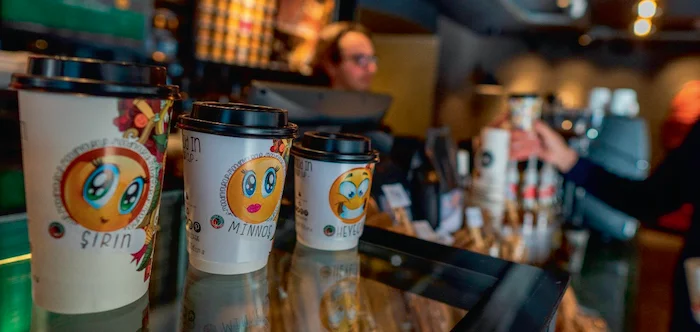
FIQ.: That’s a good starting point then. Other cities don’t know how to be in the game.
I.D.: Yes. For example, Ankara based restaurants like Big Chefs, Nam Nam, Kırıntı or Midpoint are not that successful in Izmir. They only have two branches. They don’t know the dynamics of this city. For instance, there is no caste system or hierarchy in Izmir. Regarding the food and drink sector, there is little difference between working class and upper class. They nearly spend the same amount of money on food and drinks. This city
requires sincerity and interaction more. Let me give you an example. Once in Istanbul, I got a donut, but it had gone bad. When I told the manager, he was completely uninterested and didn’t care. If you did something like this in Izmir, no one would go to that café again.
FIQ.: Another thing I want to ask is about your concept. How did you manage to make your café seem both global and Turkish because I don’t see any Turkish things?
I.D.: We have a couple of things. First of all, the question ‘How do you feel today?’. Everyone knows that this personal question cannot be asked by an American person. The second one is using treats. For example, if a table orders many things, we offer them a piece of cake or a cookie, etc. That’s something very Turkish. The last one is Turkish coffee and Turkish tea. Turkish people know that they cannot drink real Turkish tea or coffee in an international chain. We don’t show them in our menus, but everyone knows that if they want Turkish tea, we always have fresh brewed tea ready. Our main purpose was to have a global identity, so that’s why everything is in English. However, by keeping this east and west combination we accomplished our goal.
FIQ.: Who is your target audience?
I.D.: First all, ‘How do you feel today? / What’s your mood today?’ is a question that everyone wants to be asked, but when you look at marketing, 25–35-year-olds are the main targets as they start to be financially independent and want to take part in socio-cultural life. Then, today’s 45-year-olds are also different. They listen to rock or rap music, have tattoos and simultaneously raise their children. They don’t want to stay home all day.
Moreover, now many people choose a minimal life and live in small studio apartments and the time spent outdoors has risen. Maybe we’ll see that in 5 or 10 years, there won’t be any MediaMarkts or big department stores anymore because everyone is trying to buy things from the cheapest online sources. However, the only sector that will stand out will be food because people not only spend money on food, but also spend their time. Students come and study, but they don’t spend money on coffee only, they buy ‘time’ as well. Now even 55–60-year-olds are our customers. They adapted well to the changing times and as entrepreneurs we should pay attention to this mindset, too. Maybe our marketing strategy should be more related to having that personal experience. People might just want a place where they can work on their laptops in a cozy atmosphere.
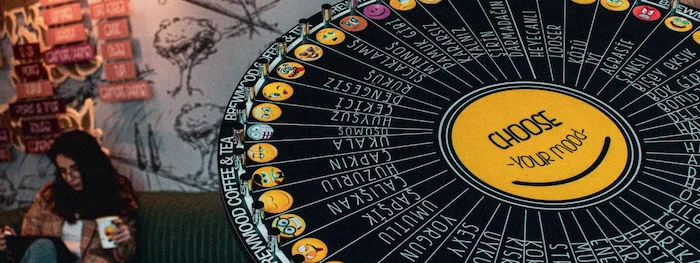
‘We decided that we should ask a question to the customers, a question that creates communication and interaction, ownership of the product.’
FIQ.: This ‘personal experience’ thing is more and more important in food sector…
I.D.: To raise interaction, we also designed an app based on personal experience. People can win different things every day, so we invest in technology, too. This app is all about making people feel special or valued because they already get bored of low income, poor economy, work-life balance, etc. With this favor, they become happier and enjoy your product.
FIQ.: I just want to share an anecdote. I went to Brew Mood in Göztepe on the first of January to study right after New Year’s Eve and I saw some old men playing rummikub which was interesting because it’s a game generally played in coffee houses (kıraathane) in Turkey. Then while I was waiting in the line, there were two students. When the cashier asked their mood, they started to have a conversation. This really surprised me because that question enabled communication. They started to chat.
I.D.: Yes, exactly. One of the disadvantages of a selfservice café is getting feedback. For example, when you go to a restaurant, the manager can ask you if you are satisfied with the service or food. There is also constant communication between them. However, in a selfservice café, people come, pay, and go, so you don’t have a chance to learn whether they like it or not. With this simple question, we achieved that communication. For example, on New Year’s Eve, we did something very creative on a takeaway coffee. Instead of giving emoji stickers, we put a scratch card like the lottery, people won things like PlayStation, cookies, tea, cake, smart watch, etc. Turkish people like leaving things to chance. The idea of ‘winning’ had a huge impact. Sales increased in one week. We didn’t have big roundtable meetings or NLP sessions for this. We only decided on a simple question and that question met the emotional needs of people. Our aim was to find something short and sustainable. We sometimes change emojis, too.
FIQ.: I was going to ask the same thing. How do you decide on that?
I.D.: It is a must to refresh the energy of a café or a restaurant as customers tend to get used to the decor or taste of the food, etc. However, changing the menus or products are costly. The thing we do is simple and affordable. We give 50 TL, remove existing moods and replace them with new ones. Actually, we also do it on demand. For example, people want to see mood stickers like ‘feel like shit’ or ‘standard’ and we will do this based upon their requests. It’s also risky somehow. Some negative feelings might not be acceptable in society like ‘feeling sexy’, ‘feeling like shit’ or ‘hangover’, but we use them because these are real feelings.
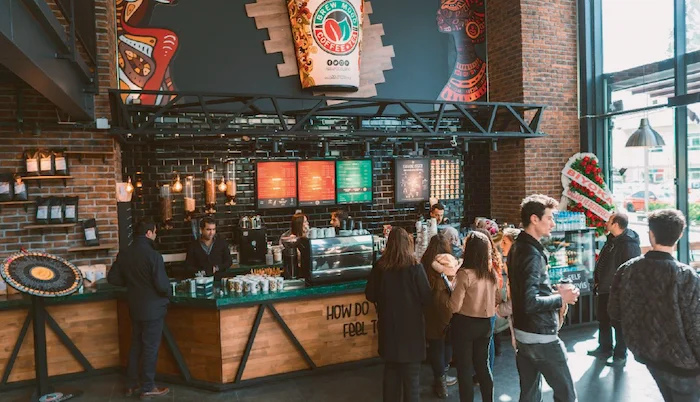
FIQ.: Do you have any strategies when you open a café? Like it should be near a university or something? I.D.: Yes, we do. But first you need to study the data from the top five cafés with professionals. After the analysis, there’s budgeting. We try to find answers to different questions like ‘What can we find nearby? A bus-stop? A crosswalk?’ ‘How about traffic? How many cars pass by every day?’ ‘What are the consumer habits of that district?’ ‘How much do people earn?’ ‘Who do they vote for in elections?’. We buy this data, so when we want to open a new café, we take all of this into consideration. If it is worth it, we go ahead. We do some math there. The biggest mistake other managers make is that they don’t do a feasibility study. Then after three months, they face an immediate close-down. Turkish people are very impatient; they want to be rich very quickly. I wish they took professional help. We do this and we might be the only one in our field. International companies like Starbucks and Burger King also follow this strategy.
‘Through experience, I can clearly say that every ten years, coffee as a concept, changes.‘
FIQ.: This requires a great deal of academic work then.
I.D.: Yes, indeed. You spend money only once.
FIQ.: My last question is about your short, medium, and long-term goals. I.D.: As I mentioned before, our long-term goal is Seattle, but for this year, our short term plan is to open branches in main big cities such as Istanbul, Konya, Kayseri, Gaziantep, Trabzon, and Ankara. We are now in contact with England, Germany, Iran, and Azerbaijan. But our aim is not opening one branch only. We want to grow with franchising. In our 3-year plan, our goal is to be at least in nearby countries. Iran and Azerbaijan are the most possible ones for now, but we are planning to be in Bulgaria and Greece, too. In our 5-year plan, we are planning to be in whole Europe. Actually, we can grow very easily, but because we work on many things like profit and loss statements or credibility, we don’t want to do it too fast.
Translation by Sevgi Irk
